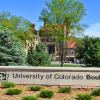News
 Dr. Peter Newton (ENVS Assistant Professor) led a study of the potential social and economic opportunities and challenges of plant-based and cultured (or 'clean') meat for farmers and ranchers. The paper was published in the journal 'Frontiers in Sustainable Food Systems', and was co-authored by Dan Blaustein-Rejto who works with The Breakthrough Institute.
Dr. Peter Newton (ENVS Assistant Professor) led a study of the potential social and economic opportunities and challenges of plant-based and cultured (or 'clean') meat for farmers and ranchers. The paper was published in the journal 'Frontiers in Sustainable Food Systems', and was co-authored by Dan Blaustein-Rejto who works with The Breakthrough Institute. The team led by John All of Western Washington University plans to spend the next two months in the region collecting samples and studying the ice, snow and vegetation.
The team led by John All of Western Washington University plans to spend the next two months in the region collecting samples and studying the ice, snow and vegetation. A new exhibit exploring the space where art and the natural world meet is on view at the CU Art Museum. The exhibit, Documenting Change: Our Climate (Past, Present, Future), showcases 70 artworks from 31 artists. The exhibit features documentary photographs from the archives of the National Snow and Ice Data Center and contemporary artworks with a focus on the Rocky Mountains.
A new exhibit exploring the space where art and the natural world meet is on view at the CU Art Museum. The exhibit, Documenting Change: Our Climate (Past, Present, Future), showcases 70 artworks from 31 artists. The exhibit features documentary photographs from the archives of the National Snow and Ice Data Center and contemporary artworks with a focus on the Rocky Mountains. Year long capstone project conducted by three CU Boulder students pursuing a Masters of the Environment (MENV) professional graduate degree teamed up with Vail Resorts Inc. to help the industry leader reach its commitment to send no waste to the landfill by 2030.
Year long capstone project conducted by three CU Boulder students pursuing a Masters of the Environment (MENV) professional graduate degree teamed up with Vail Resorts Inc. to help the industry leader reach its commitment to send no waste to the landfill by 2030. Five Questions for Deserai Crow. Environmental policy, natural disasters prove fertile research ground for lover of the outdoors
Five Questions for Deserai Crow. Environmental policy, natural disasters prove fertile research ground for lover of the outdoors Make sure you have your eco pass! Students who travel between campuses for classes and appointments will see changes in the bus routes and schedules begining Aug. 27th. These changes are intended to tailor routes specifically and individually to the Discovery Drive and Marine Street areas of East Campus. RTD’s Stampede route is being shortened to provide improved and dedicated service to Discovery drive
Make sure you have your eco pass! Students who travel between campuses for classes and appointments will see changes in the bus routes and schedules begining Aug. 27th. These changes are intended to tailor routes specifically and individually to the Discovery Drive and Marine Street areas of East Campus. RTD’s Stampede route is being shortened to provide improved and dedicated service to Discovery drive ENVS undergraduates get the opportunity to do some pretty fabulous research! CU Boulder Today highlights ENVS alumn, Rachael Kaspar, who studied the secret lives and social behavior of honeybees. Kaspar graduated in 2016 with a bachelor’s degree in Ecology and Evolutionary Biology (EBIO) and Environmental Studies (ENVS) with a minor in Atmospheric and Oceanic Sciences (ATOC). She is the lead author of a scientific article in Animal Behavior based on her undergraduate honors thesis about honeybee behavior, which shows experienced fanner honey bees influence younger, inexperienced bees to fan their colony to cool it down.
ENVS undergraduates get the opportunity to do some pretty fabulous research! CU Boulder Today highlights ENVS alumn, Rachael Kaspar, who studied the secret lives and social behavior of honeybees. Kaspar graduated in 2016 with a bachelor’s degree in Ecology and Evolutionary Biology (EBIO) and Environmental Studies (ENVS) with a minor in Atmospheric and Oceanic Sciences (ATOC). She is the lead author of a scientific article in Animal Behavior based on her undergraduate honors thesis about honeybee behavior, which shows experienced fanner honey bees influence younger, inexperienced bees to fan their colony to cool it down. ENVS affiliate, Associate Professor Beth Osnes, discuss with CU Boulder Today her creation and direction of Shine, a musical performance about how energy, climate and humans are interrelated. Set against a hand-drawn backdrop representing 300 million years of earth’s geologic history, youngsters dressed in colorful costumes symbolizing plants and insects sing and gambol around the stage. Osnes works is co-founder and co-director of Inside the Greenhouse, an endowed initiative at CU Boulder to celebrate creative climate communication through film, theater, dance and music.
ENVS affiliate, Associate Professor Beth Osnes, discuss with CU Boulder Today her creation and direction of Shine, a musical performance about how energy, climate and humans are interrelated. Set against a hand-drawn backdrop representing 300 million years of earth’s geologic history, youngsters dressed in colorful costumes symbolizing plants and insects sing and gambol around the stage. Osnes works is co-founder and co-director of Inside the Greenhouse, an endowed initiative at CU Boulder to celebrate creative climate communication through film, theater, dance and music. Boulder is the place to be for students who want to study and research issues related to the environment. CU Boulder's earth science and atmospheric science disciplines both ranked No. 1 overall among world universities in the ShanghaiRanking Consultancy's 2018 Global Ranking of Academic Subjects (GRAS), which was published today. The university also scored highly in a dozen other academic categories, highlighting the breadth of impactful CU Boulder research.
Boulder is the place to be for students who want to study and research issues related to the environment. CU Boulder's earth science and atmospheric science disciplines both ranked No. 1 overall among world universities in the ShanghaiRanking Consultancy's 2018 Global Ranking of Academic Subjects (GRAS), which was published today. The university also scored highly in a dozen other academic categories, highlighting the breadth of impactful CU Boulder research. While President Trump’s decision to leave the Paris climate agreement probably dismayed climate scientists, it did at least provide some interesting data for scholars who study trends in the negotiations. One of those researchers is David Ciplet, an assistant professor at the University of Colorado Boulder who recently returned from the climate negotiations in Bonn, Germany, and who said other nations are mulling ways to fill the climate-leadership vacuum left by the United States.
While President Trump’s decision to leave the Paris climate agreement probably dismayed climate scientists, it did at least provide some interesting data for scholars who study trends in the negotiations. One of those researchers is David Ciplet, an assistant professor at the University of Colorado Boulder who recently returned from the climate negotiations in Bonn, Germany, and who said other nations are mulling ways to fill the climate-leadership vacuum left by the United States.

